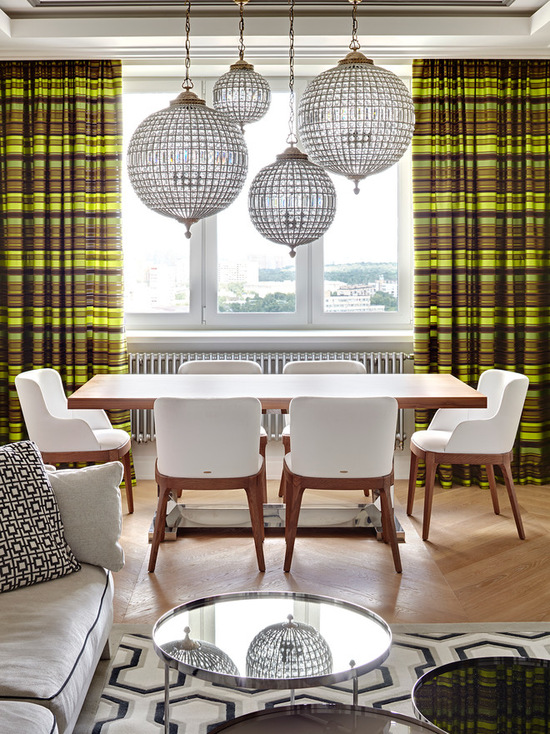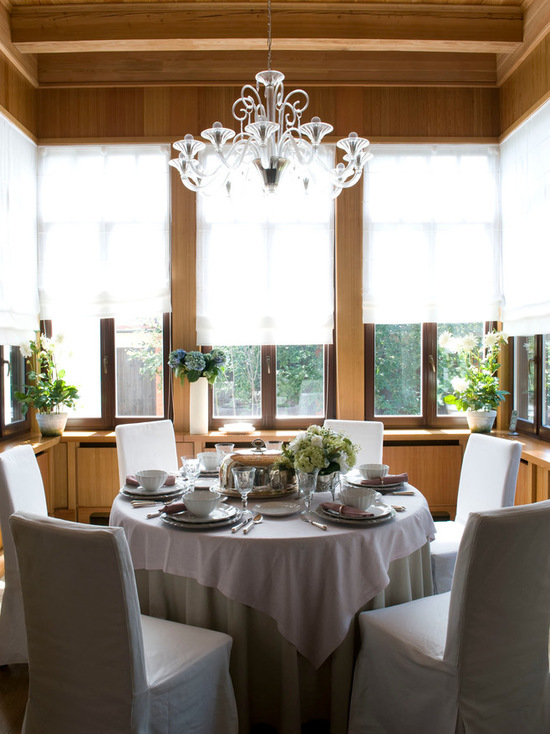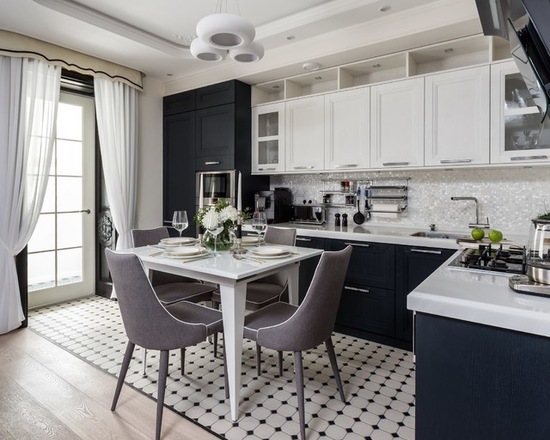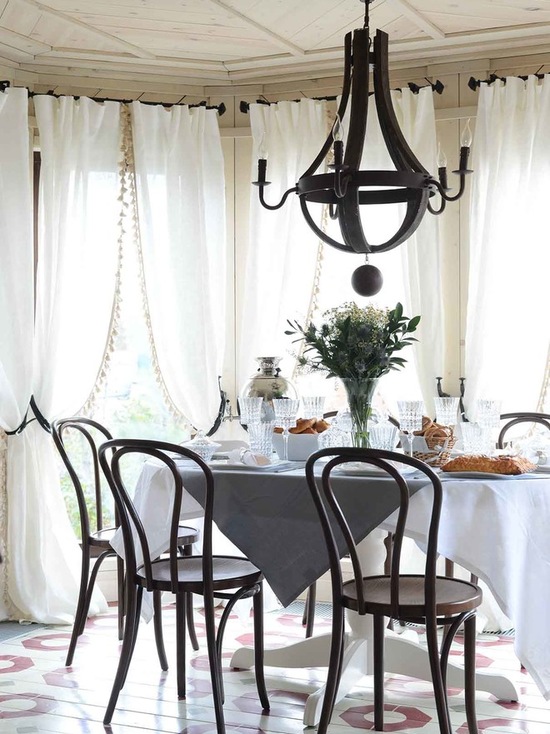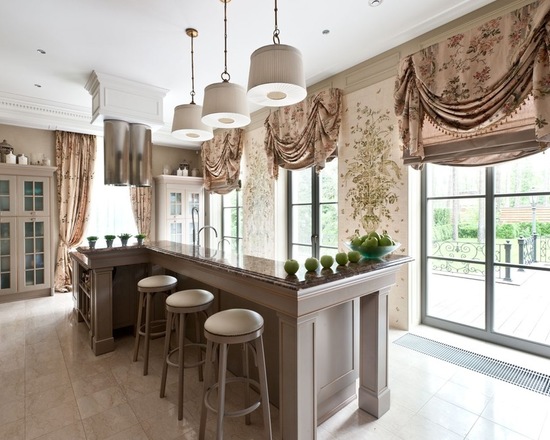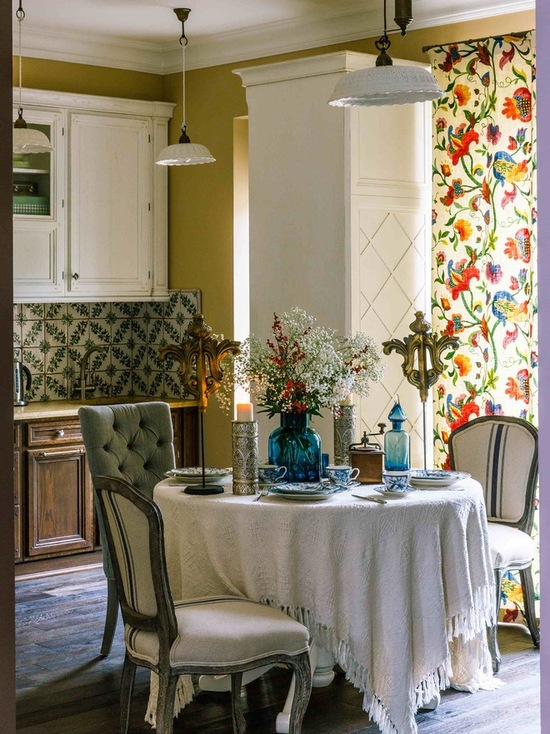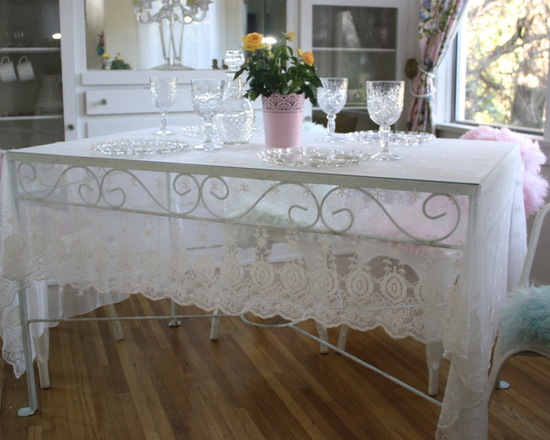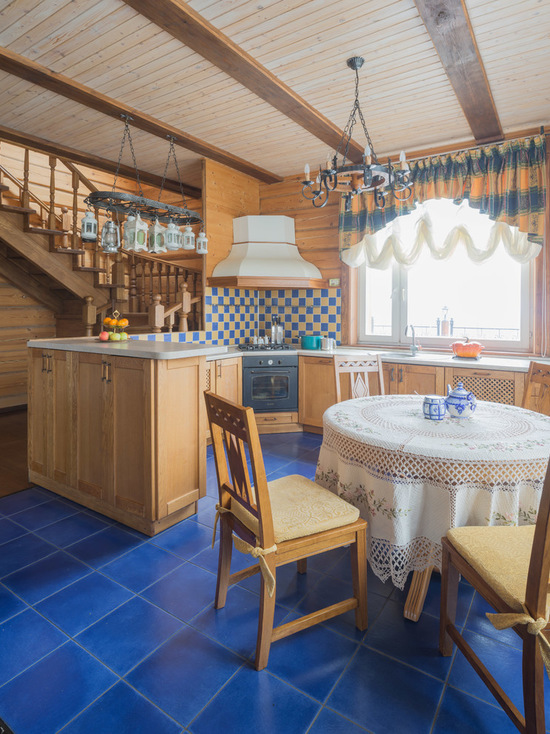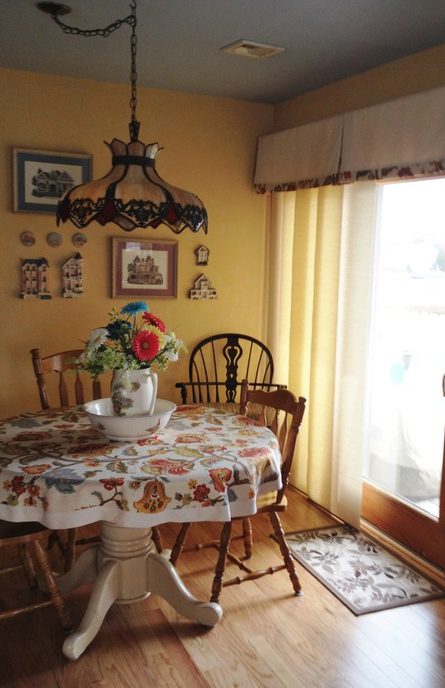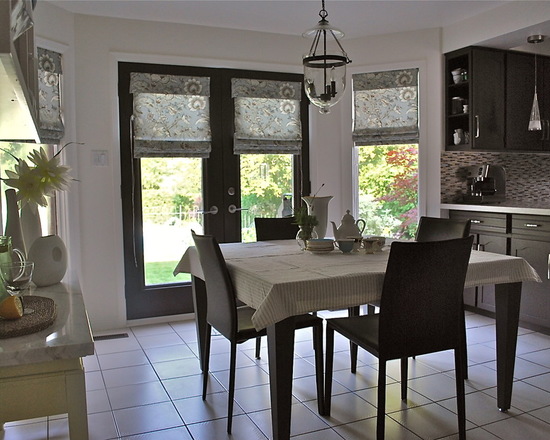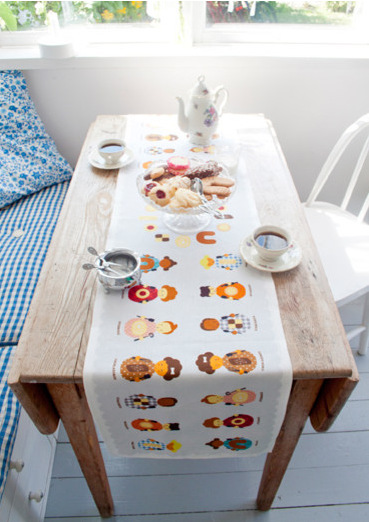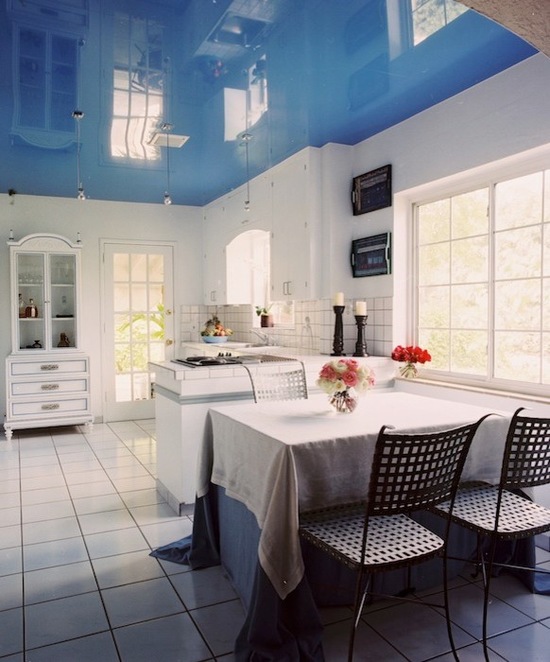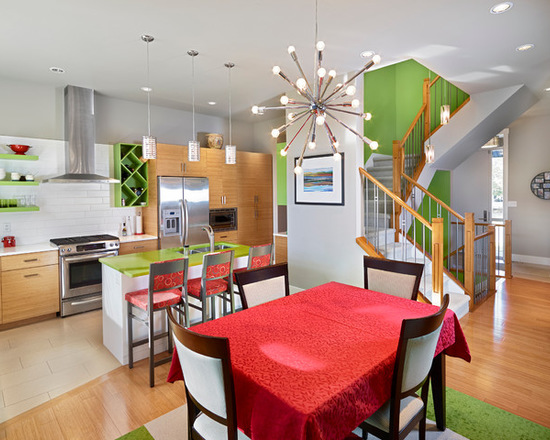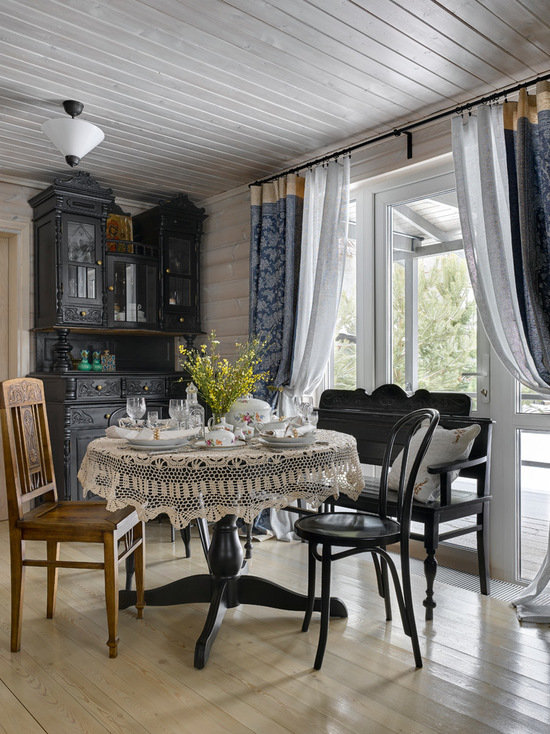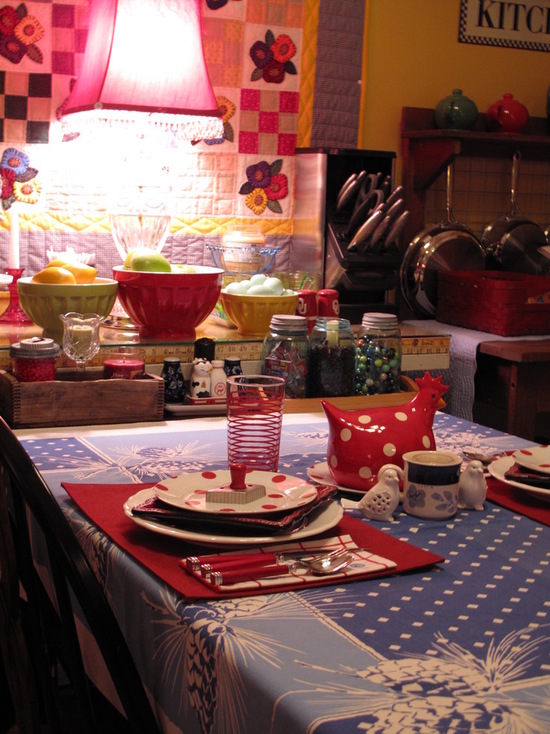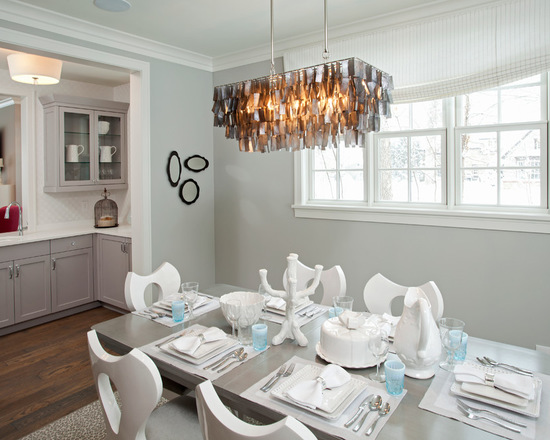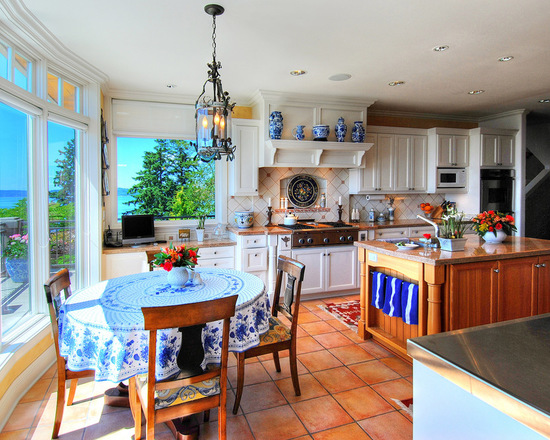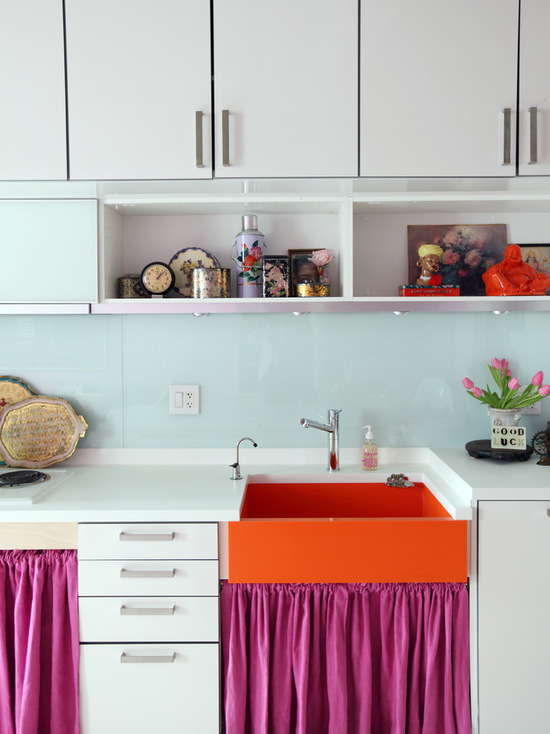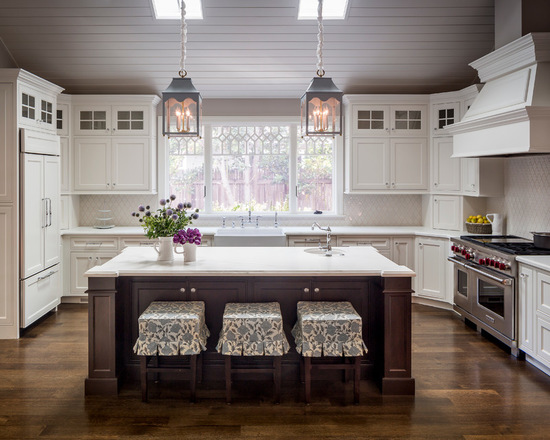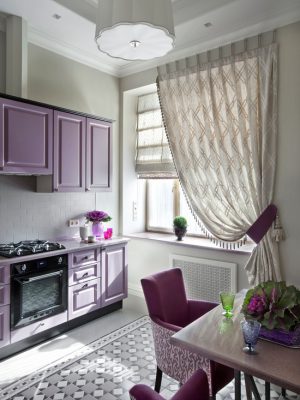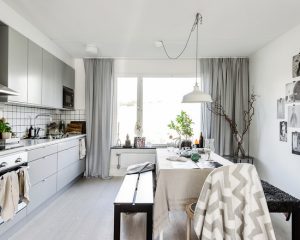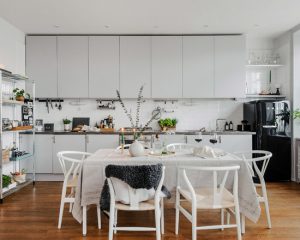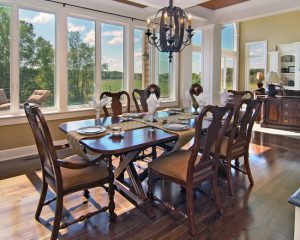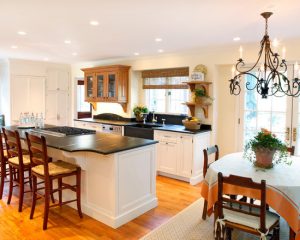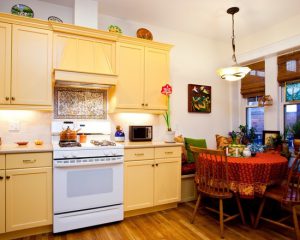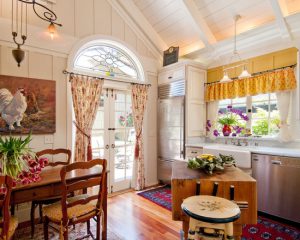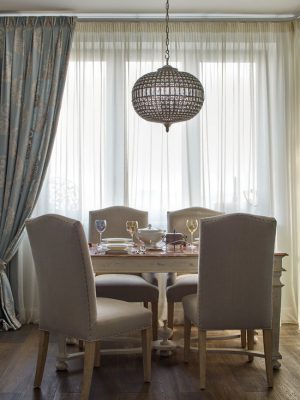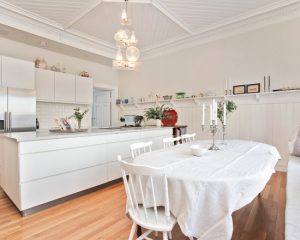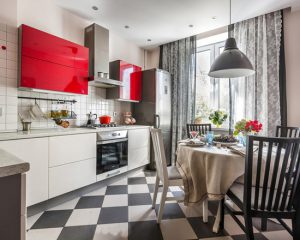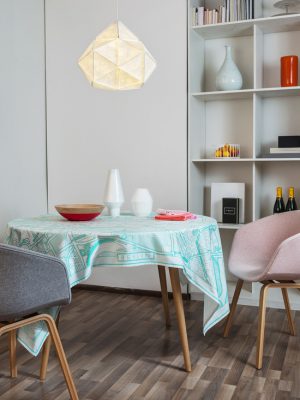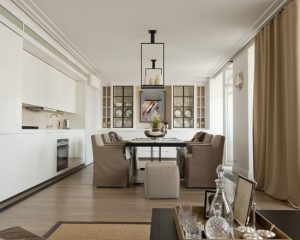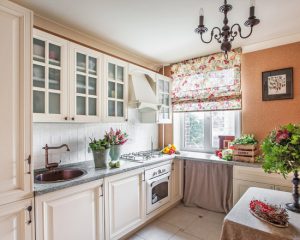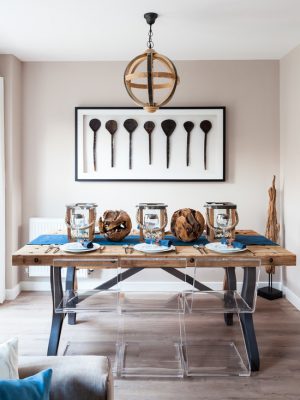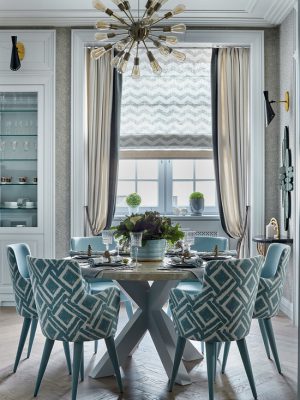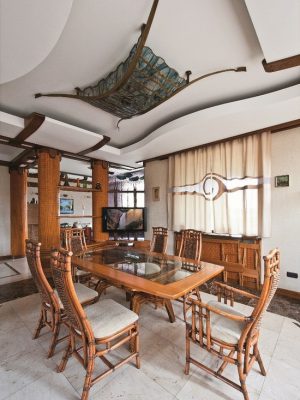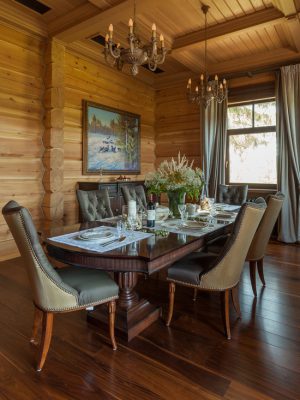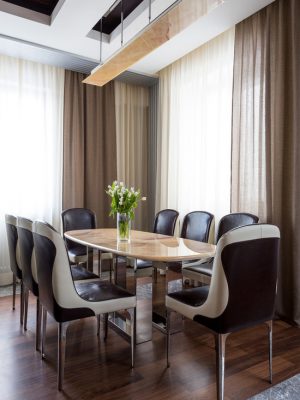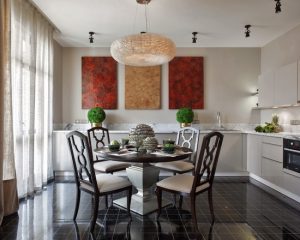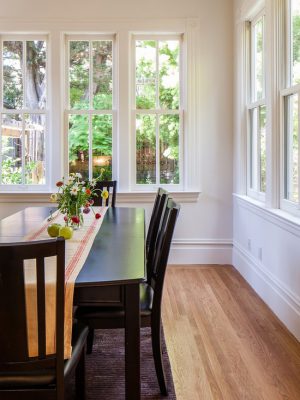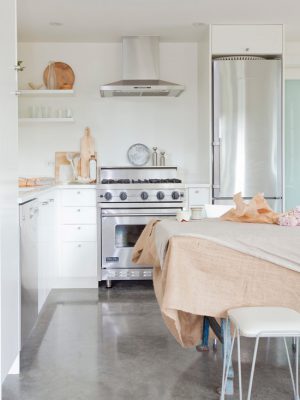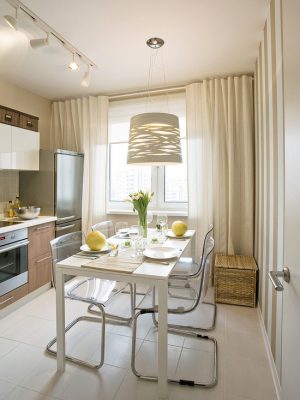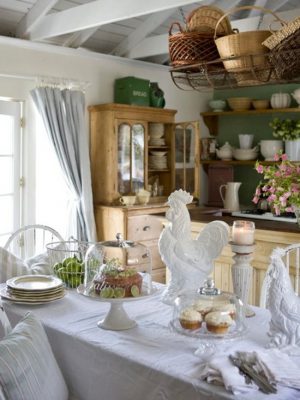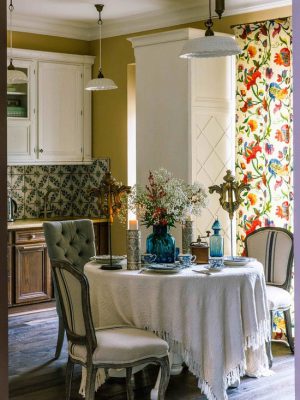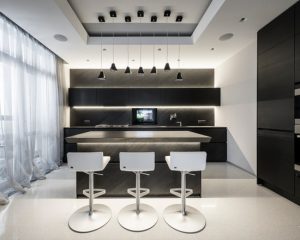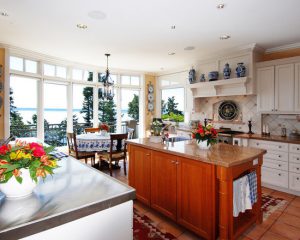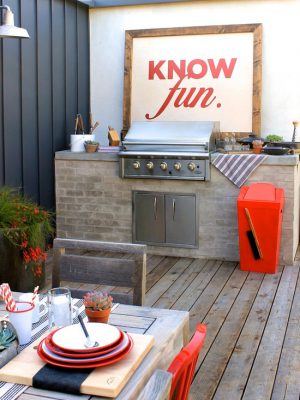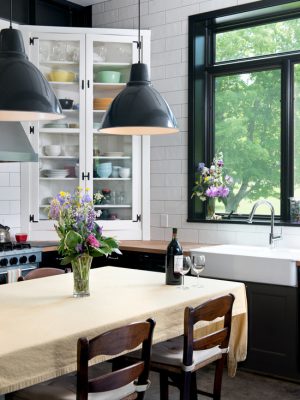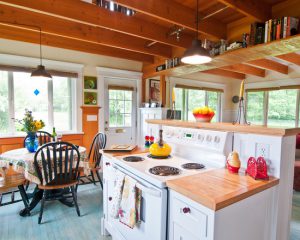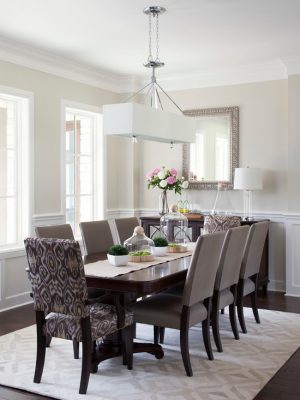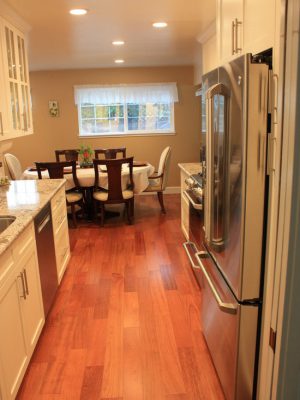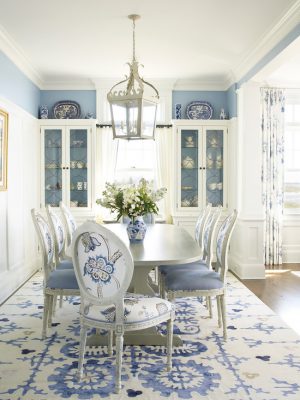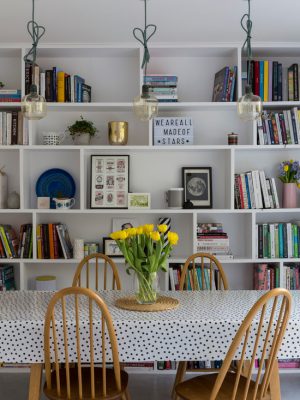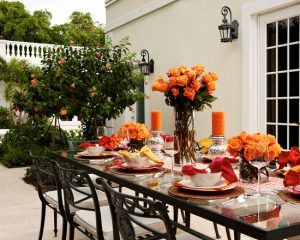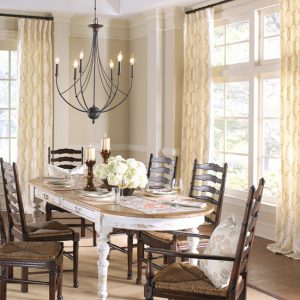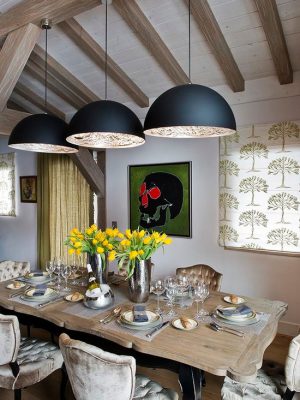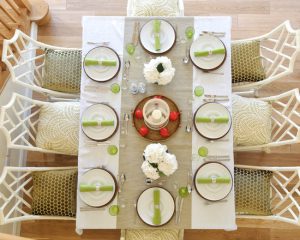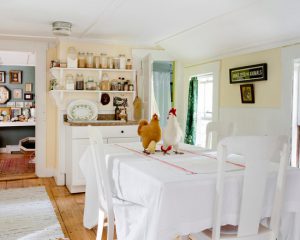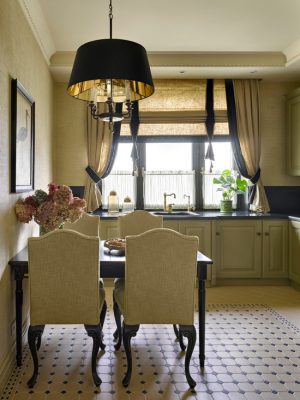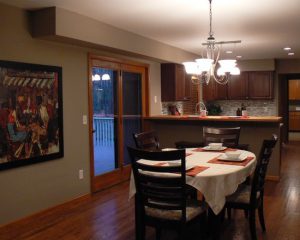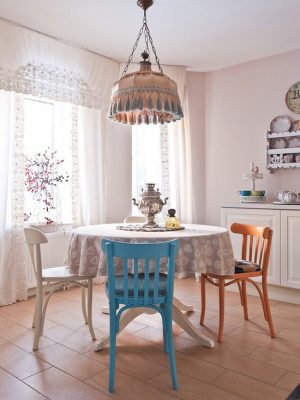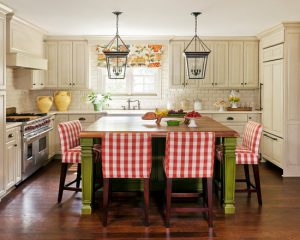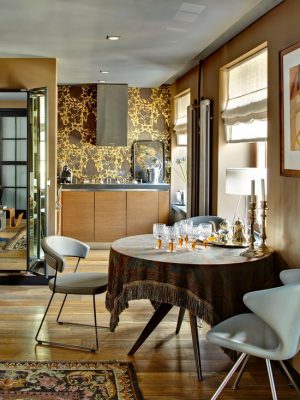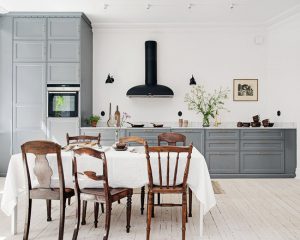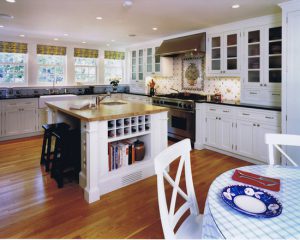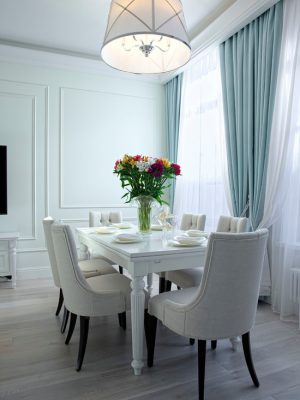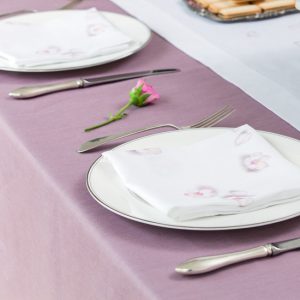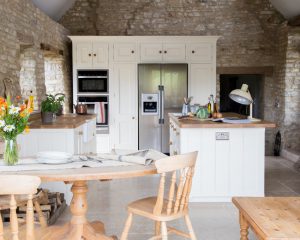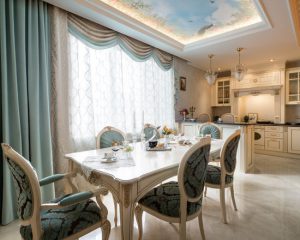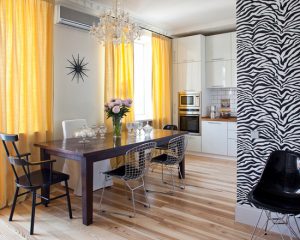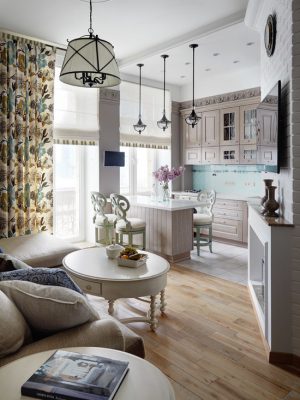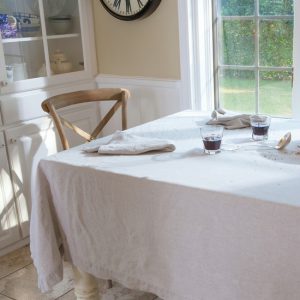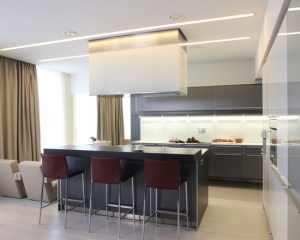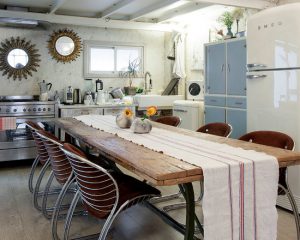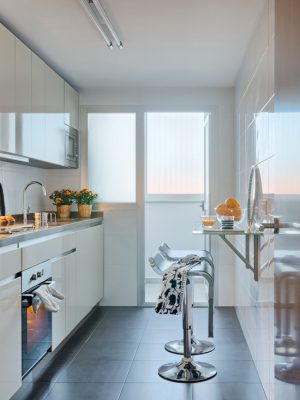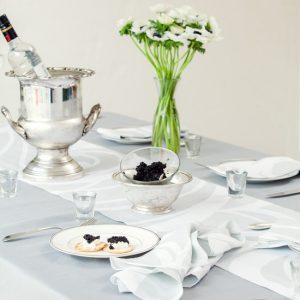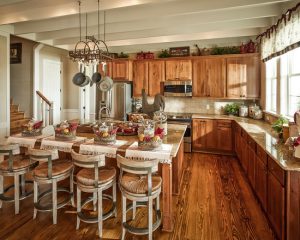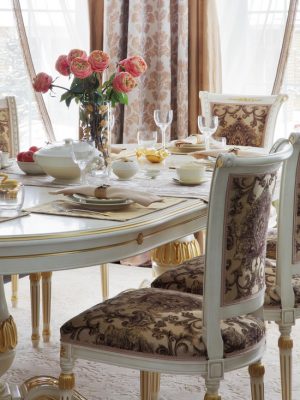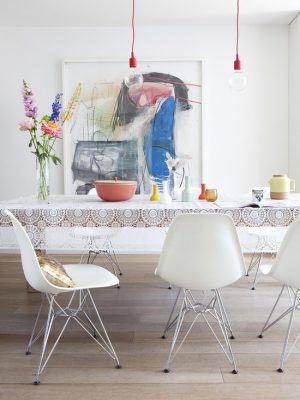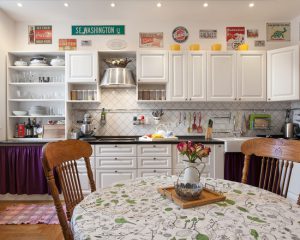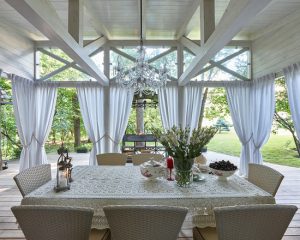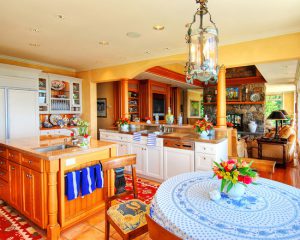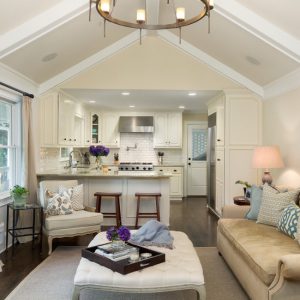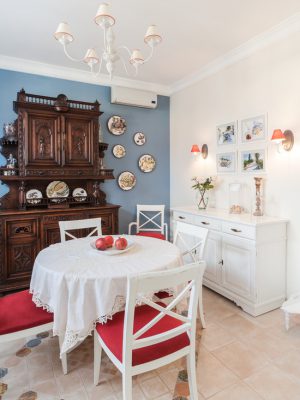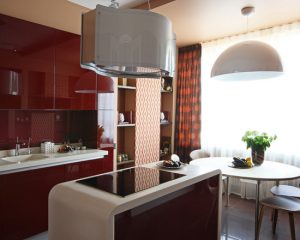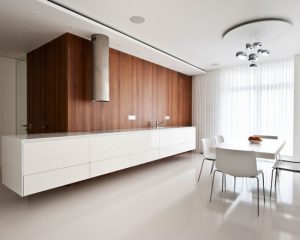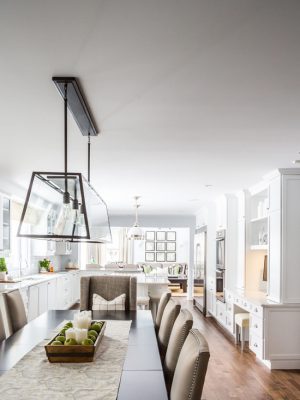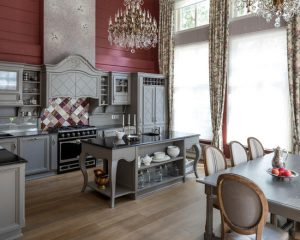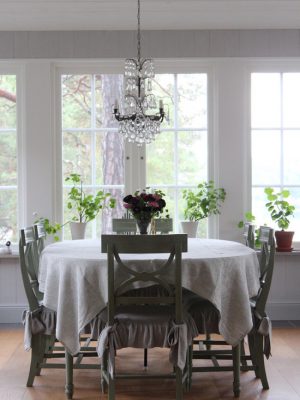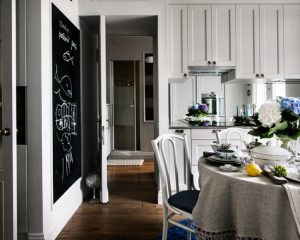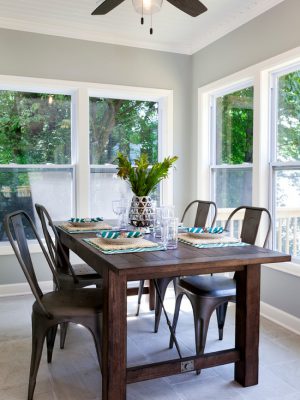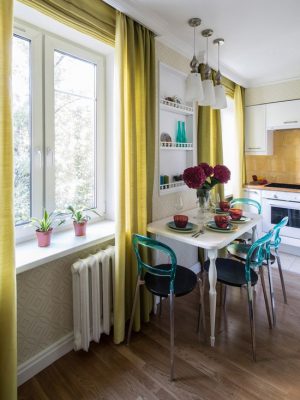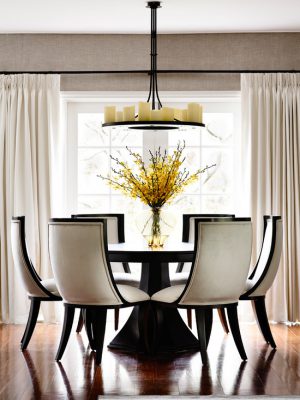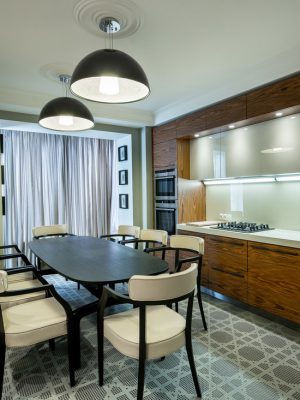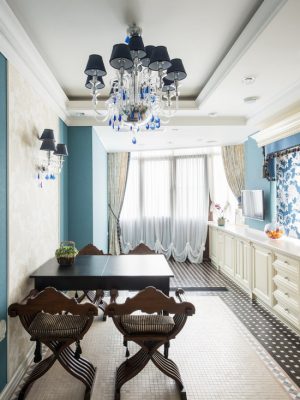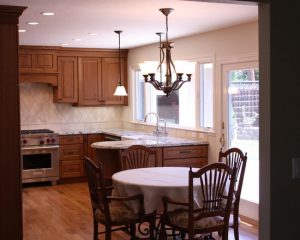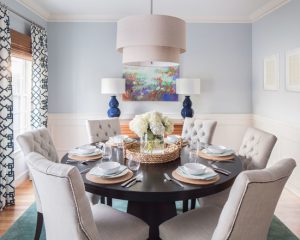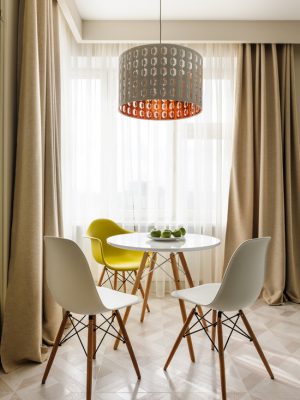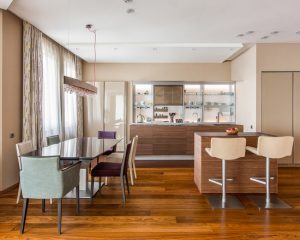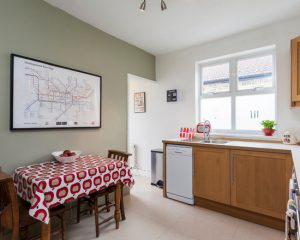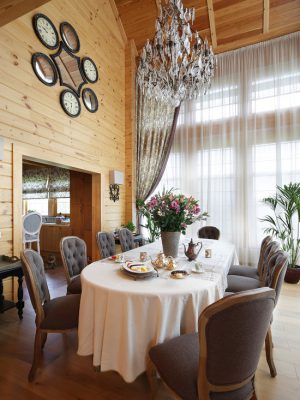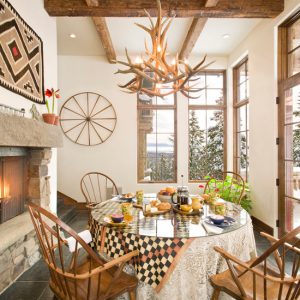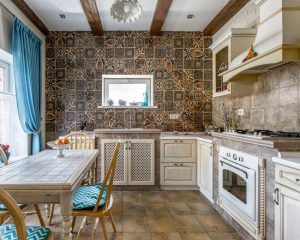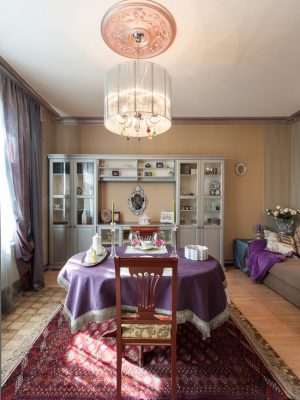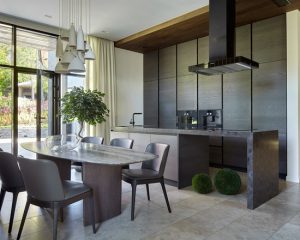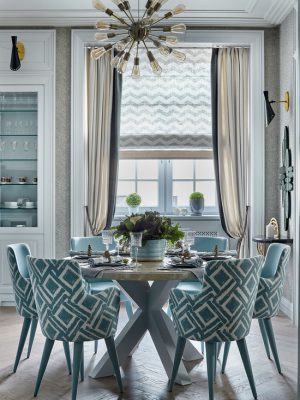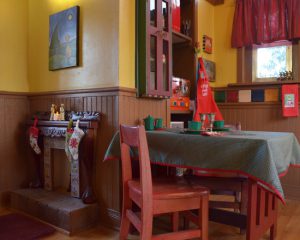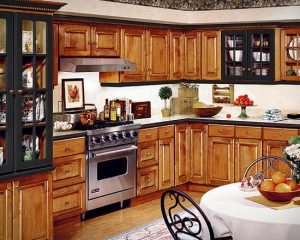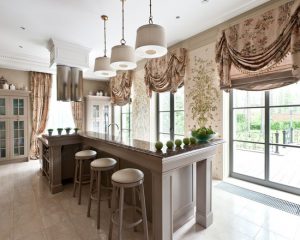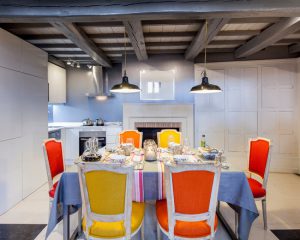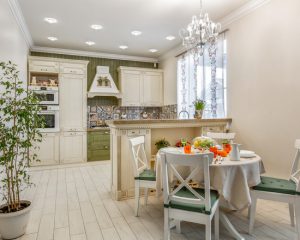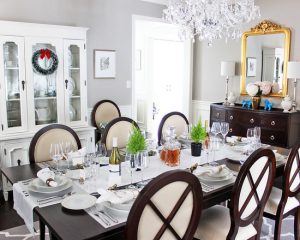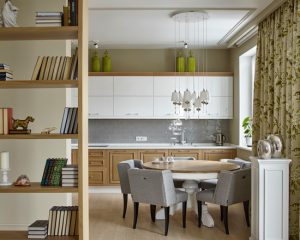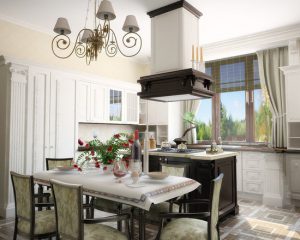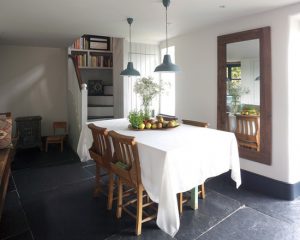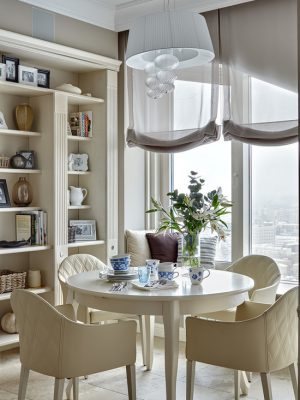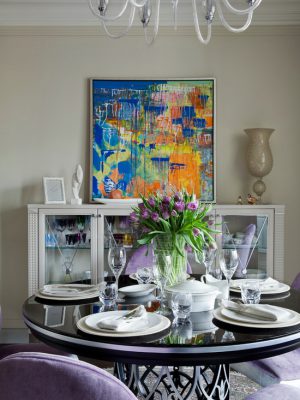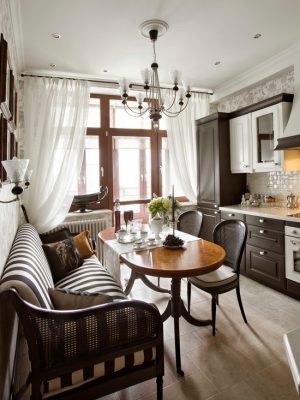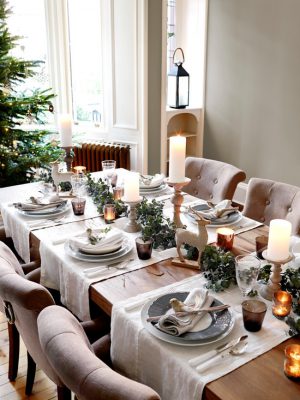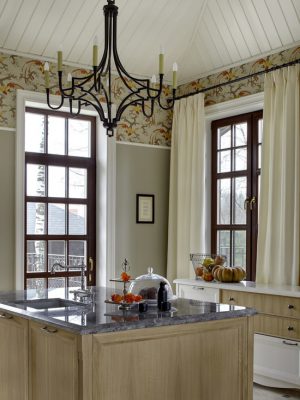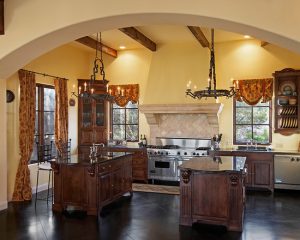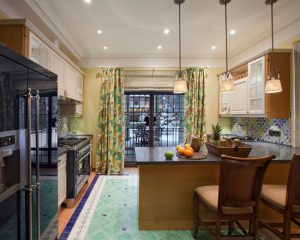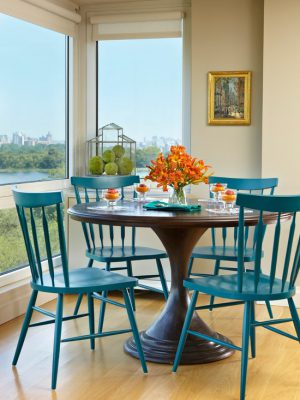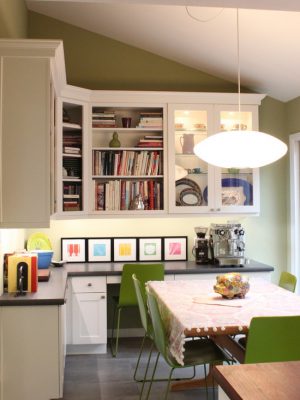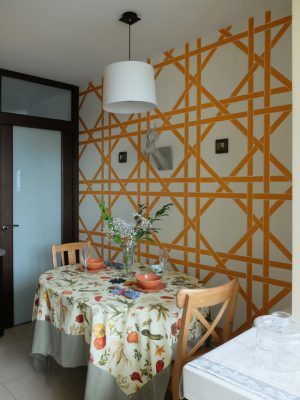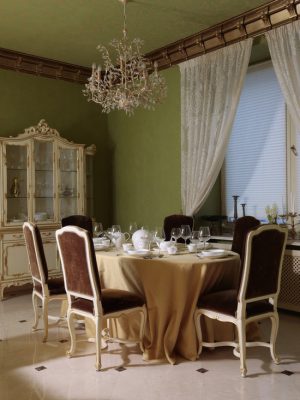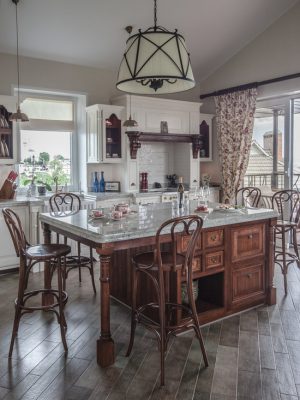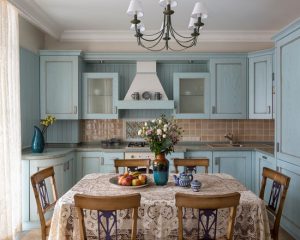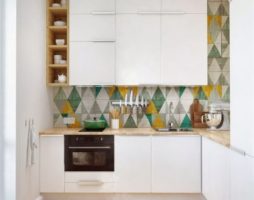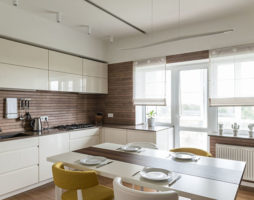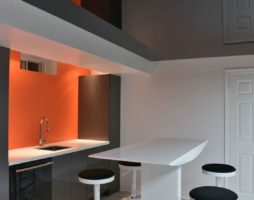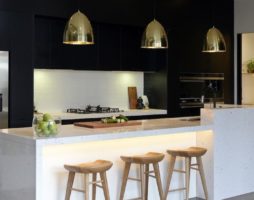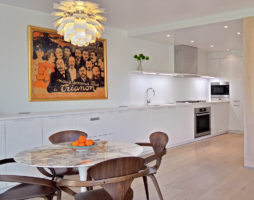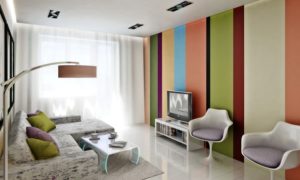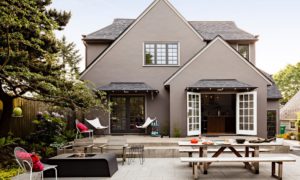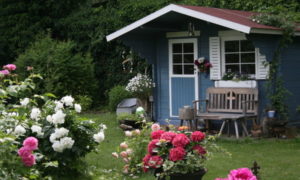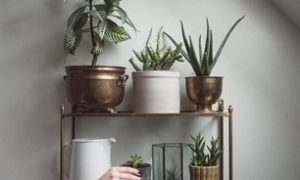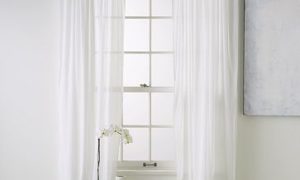Changing the design of your apartment today is very simple - there are plenty of materials for interior decor in the assortment of stores. However, if you are not strong in construction, but you really want to do something personally for home improvement, take care of textiles. It can transform any room. Textiles appear in the greatest variety in the interior of the kitchen. Here you can sew original curtains, potholders, napkins, make pillows for stools, buy or embroider beautiful tablecloths, kitchen towels. This textile arsenal will provide comfort in the room.
Create a beautiful design will help the materials of the original texture and color. So, bright textiles will be very appropriate in a bright kitchen. Accent elements will add life-affirming notes to the atmosphere. With such decor, the space of even an old kitchen will be perceived in a new way. But the most important thing in this case is that this original design can be done independently by turning on your imagination and applying your skills. Think of what you would like to see in the kitchen interior, decide on a color palette and you can safely get down to business. There is a place for textiles in the window area, in the working part, and in the rest corner.
Changing textiles is a great way to redecorate a kitchen space. With the advent of new curtains, design can become truly unrecognizable. The cost of such a transformation is minimal, but the effect is amazing.
Textiles in the interior of the kitchen: the main tasks
When it comes to textiles, many people see it only as curtains and curtains and do not even suspect that it can be used to set the overall tone of the room and make its design more vivid, “alive”, or something. Of course, you can also ask professional designers to pick up harmonious compositions, however, knowing some tricks, it is quite possible to cope with the task on your own.
Fabrics for decor should be selected carefully, understanding that their shade and pattern should be combined with the overall concept of kitchen design. In addition to these parameters, you need to look at the quality of matter. Since the kitchen is a place with special conditions, everything in it must be practical to use. Textiles should also not absorb and store extraneous odors. It is important that it is simple and easy to clean. And also, a peaceful atmosphere should reign in the kitchen, only in this case the household will be happy to spend time on it. So feel free to fill the atmosphere with homely warmth, which is best conveyed by napkins, tablecloths, aprons, towels, insulating coasters, dolls for teapots. With the advent of such unusual textiles, even in the most concise and strict interior of the kitchen, sparks of the holiday will appear.
Products made of fabrics can not only decorate and diversify the situation, but also do the work of correcting the decor, hiding the uneven walls and other flaws in the finish. In pursuit of the effect, you need not to overdo it with paints and be able to solve the issue of color combinations, otherwise the textiles will not be a great addition to the design of the room, but an annoying lurid spot.
back to index ↑General tips for using kitchen textiles
- Do not forget that cloth utensils in the kitchen appear not only to hang on the wall, they are actively used for their intended purpose: pots are removed from the stove with potholders, aprons are put on during work, hands are wiped with towels, etc. This means that it is better to take natural fabrics used for the manufacture of textiles in the interior of the kitchen, such as linen and cotton. It's better to say "no" to synthetic products. It is especially dangerous to use synthetics in oven mitts and mittens, as it melts from heat, and we absolutely do not need injuries in the kitchen. Waffle towels are a great solution for the kitchen. They easily absorb moisture and dry very quickly.
- In aesthetic terms, it is important to combine textile elements both with each other and with the style of the kitchen as a whole. For classic interiors, choose cotton products, preferably without any applications. Tablecloths, napkins and curtains can be fringed, ruffled or elegantly embroidered. For high-tech decor, textile accessories are not provided, so you have to do without them. Linen and checkered or striped towels are relevant in Provence.
- The right color combinations can also work wonders in kitchen design. The bright colors of textiles in the interior of the kitchen will act as accents and distract from minor decorative flaws in the decor. Green, pink, orange textiles are added to light interiors, and red and yellow to cold ones.
Several sets of textiles will help to regularly diversify the stylistic decision of the kitchen. In such a simple way, you will not let the atmosphere bother you.
Fabric choice
“Having several sets of textiles of different design, you will get the opportunity to change the atmosphere in the interior of the kitchen”
Creating a stylish interior requires a competent approach to choosing the texture of fabrics. For the kitchen space, natural materials are the best solution, which not only do not lose their attractiveness for a long time, but also have a decent service life. The most wear-resistant linen and cotton. It is acceptable to use fabrics with a slight admixture of fibers of synthetic origin.
Having several sets of textiles of different design, you will get the opportunity to change the atmosphere in the interior of the kitchen, depending on:
- Moods.
- Season.
- Significance of the event.
Color selection
In order not to spoil the overall impression of the situation, when choosing textiles, the background decision of the kitchen is taken as the basis. Kitchen work takes a lot of time, so you have to stay indoors for hours and it would be very nice if the atmosphere could improve your mood. To achieve such an effect, knowing the psychology of colors, is not at all difficult. Shades of red, yellow and green spectra are considered positive.
By carefully considering the combination, you can create a modern and truly stylish interior: with delicate curtains, bright accessories, designer chair covers and a luxurious tablecloth.
back to index ↑Curtains
The design of textiles decorating the window opening should stand out with beauty and be practical.The main protective function of curtains should not come into conflict with an equally important light transmission parameter, and in no case should it interfere with the cooking process. This means that traditional textiles, with all sorts of decorative delights, will be out of place in the interior of the kitchen.. Curtains should be unobtrusive, emphasize the beauty of the view outside the window and smooth out the negative effect of possible shortcomings in the window decoration. The correct selection of the model and texture of the curtains will make even a gloomy and small kitchenette shine with new colors and seem flooded with sunlight.
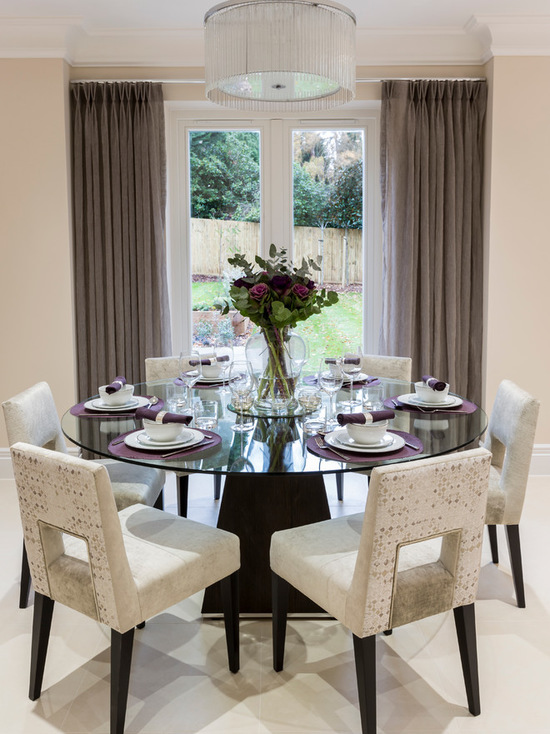
classic curtains in the interior of the kitchen
Tablecloth
Whether to use a tablecloth in everyday life or not is a purely individual matter, although if you think about it, it’s more worth doing it. It will protect the countertop and at the same time add style to the setting. A table covered with a tablecloth is comfort, beauty and always a festive mood, so choosing textiles of this kind in the interior of the kitchen should be done slowly and thoughtfully.
tablecloth shape
What shape the tablecloth will have depends on the type of kitchen table. If the table has corners, that is, a clear rectangular or square shape, then it must be covered with a tablecloth with the same tailoring geometry. It is easier to choose coverings for oval and round tables. Here you can use both tablecloths identical in shape, and rectangular or square, respectively. Provided that the round table is covered with a square tablecloth, the tabletop area will need to be covered with an additional, precisely matched to its size canvas, in a contrasting color. It happens that the shape of the table is unconventional, and there is no possibility to buy textiles of similar tailoring for it. In this situation, you will have to use the selection method to find such a model of the tablecloth so that it “flows” beautifully from the tabletop.
Tablecloth size
Going for such textiles in the interior of the kitchen as a tablecloth, without knowing the size of the table, is at least strange, so on the eve of going to the store, pick up a centimeter and measure:
- The square tabletop has a rib.
- A round tabletop has a diameter.
- Oval and rectangular countertops have both length and width.
After that, the length of the “drop” is added to the obtained indicators (this is the name of the part of the tablecloth hanging from the tabletop). This size can be arbitrary. In the classic version, the length of the “drop” is about 20 centimeters, of course, on each side of the table. To be sure, it is better to write down the received numbers. This will eliminate the need to take repeated measurements if you accidentally forget them.
What to do if you cannot find table textiles in the kitchen interior of the required size? Let's look at the rules of table etiquette. It says here that if it is impossible to choose a coating that is ideal in terms of parameters, a larger tablecloth is taken. How much more is a matter of taste and stylistic decision of the situation in general. However, for purely practical reasons, it is better not to cover the dining table with a tablecloth hanging down to the floor. Behind him will be uncomfortable to sit. It is desirable that the length of the "drop" does not exceed 40 centimeters.
About color
What color to be tablecloths depends on the nature of the celebration or the location of the table in the room. For both cases, the following rule will be common: textiles that appear in the interior of the kitchen must be in harmony with the overall interior.. And this is by no means a limitation, on the contrary, proceeding from this design postulate, you will have the widest choice of tablecloths. They can be combined with curtains, flooring, furniture. Play with shades.In a dark decor, add a tablecloth in a color scheme slightly lighter than the general background, in a light one, on the contrary, slightly darker.
If you don't want to bother with the combination - refer to universal neutral tones. These include the following colors:
- Pearl.
- Beige.
- Golden.
- Light salad.
- Blue.
Not only will these neutral tablecloths suit any kitchen design stylistic decision, but they can also be used for a variety of occasions.
It is not necessary to lay a white tablecloth on the festive table. For example, for a christening, you can use the option with angels, for a name day - with flower arrangements, for a wedding - with rings, doves, and other paraphernalia. Thematic textiles in the interior of the kitchen will create a special mood and the holiday will take place in a wonderful atmosphere.
back to index ↑Serving textiles
What's a party without napkins? No, not paper ones, but the real ones, fabric ones, which are laid down according to etiquette standards. Today you can purchase such products as individual sets, and complete with tablecloths. The first option is more profitable, because there are never many napkins on a holiday and you definitely need to have a supply of them. In the case when you take them together with a tablecloth, there will be only 6 such items in the set.
Another tissue note. It is impossible for napkins lying on the tablecloth to merge with the tablecloth. They must certainly stand out either in sharp contrast with it, or differing in hue ratio. This will allow guests to quickly find the item among other accessories. And in terms of design, it will look advantageous.
An interesting option is the use of textiles in the interior of the kitchen, like a slider. It is a wide fabric strip that stands out sharply against the general background of the tablecloth. Plates are placed on this path. Since the slider is made of waterproof material, it becomes an excellent protection for the tablecloth from wine, greasy, coffee and other stains that are difficult to remove.
back to index ↑Towels
When it comes to kitchen towels, many housewives immediately think of waffle models. Why? In addition to being really practical and superbly absorbent, waffle towels evoke childhood memories. After all, it was precisely this kind of products that grandmother's niches used in kitchen work. Terry products are also popular. They are no less hygroscopic, hygienic and easy to care for. A terry towel can be washed five hundred times and even after that it will retain its shape and presentable appearance. Of course, we are talking about quality products.
back to index ↑Additional decor
“In the role of additional textiles in the interior of the kitchen, covers for chairs or stools can act”
In the role of additional textiles in the interior of the kitchen, covers for chairs or stools can act. Their presence will give an atmosphere of solemnity. In addition to the “highest decorative mission”, the covers also carry a more prosaic load, simply protecting the seats from damage and making the process of sitting on them more comfortable.
Agree, sitting on cold hard plastic is not a great pleasure. Small pillows will also help you sit comfortably at the table. They can be placed under your back if you are sitting on a sofa, or you can use them to make the seat of a stool softer.
A bread box or fruit baskets can also be lined with bright textiles. It will turn out unusual and beautiful.
Conclusion
Textiles in the interior of the kitchen are soft, pleasant and sincere trifles, without which it is impossible to fill its atmosphere with harmony and comfort. Bright and bold textile design: it will improve your mood, make your stay in the kitchen pleasant, and work in it - comfortable.
back to index ↑Photo gallery - Textiles in the interior of the kitchen
